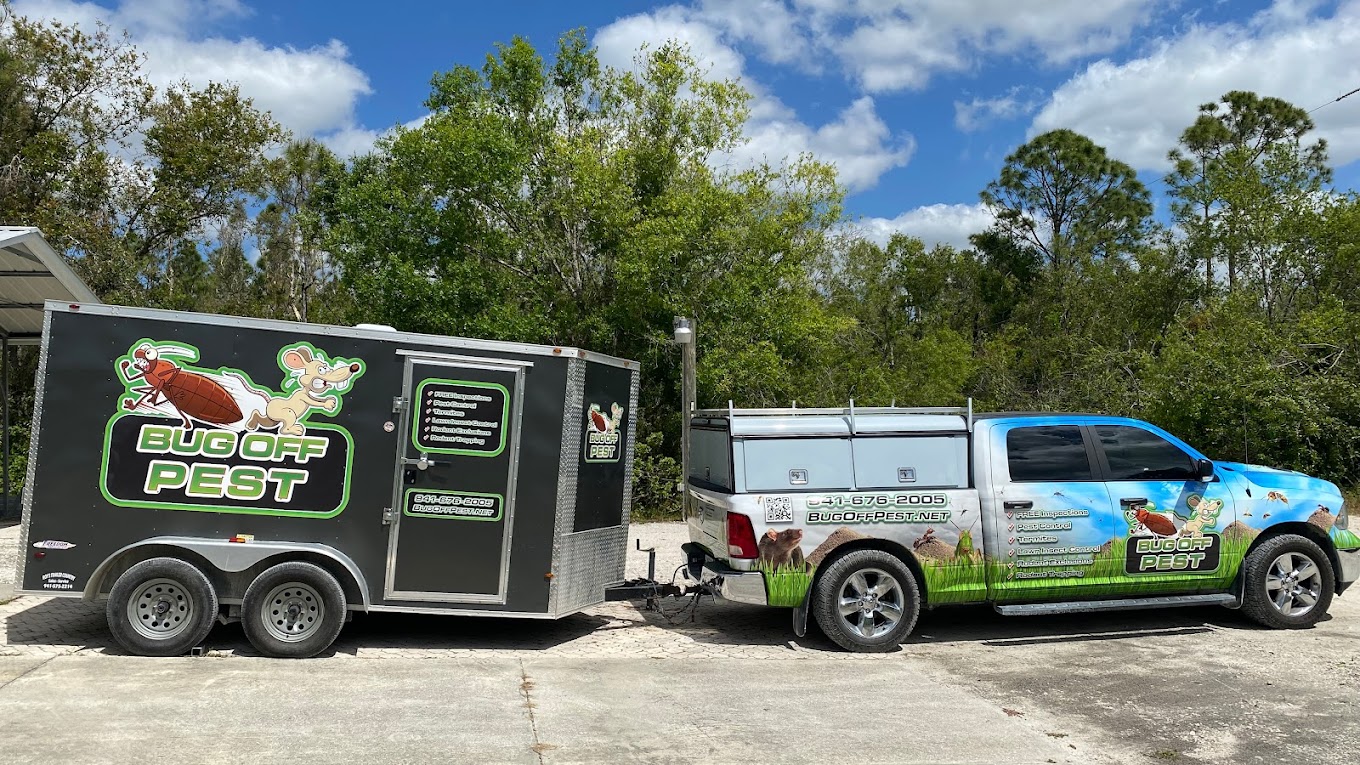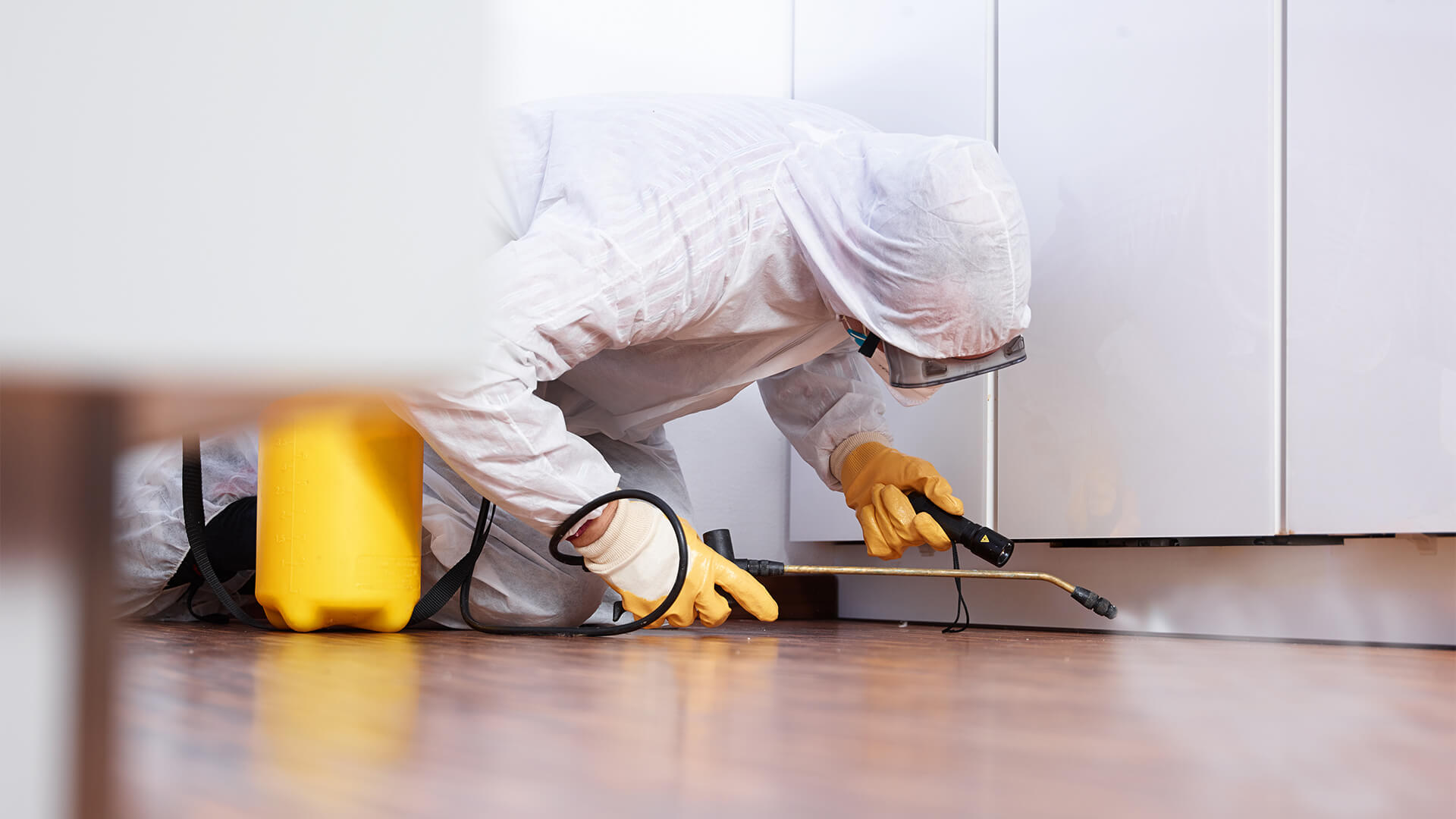Reliable Pest Control in Port Charlotte to defend your property and family.
Discovering Cutting-edge Strategies and Products for Effective Pest Control
The landscape of bug control is developing, marked by the introduction of cutting-edge techniques and items designed to boost efficiency and sustainability. From clever traps furnished with advanced monitoring systems to biological methods that employ natural predators, these innovations offer a paradigm shift in exactly how we come close to pest management.
Smart Traps and Monitoring Systems
How can modern-day innovation improve parasite management? One substantial development is the development of clever traps and keeping an eye on systems, which give real-time data and analytics for effective pest control. These systems make use of sensors and wireless modern technology to discover insect activity, notifying building managers and bug control specialists to infestations prior to they intensify.
Smart traps are geared up with functions such as bait terminals that draw in pests and record them efficiently. These catches can be kept track of remotely, enabling for timely treatments and lessening the requirement for substantial chemical applications. The assimilation of maker understanding formulas allows these systems to set apart in between target insects and non-target types, enhancing the precision of bug control steps.
In addition, the data gathered from smart traps can be assessed to determine patterns in parasite habits and ecological aspects contributing to infestations (Pest Control in Port Charlotte). This details is vital for establishing targeted insect management techniques customized to particular settings. By welcoming clever traps and keeping track of systems, insect control professionals can enhance their operational efficiency and minimize the environmental influence of parasite monitoring, inevitably resulting in safer and much more lasting practices in the market
Organic Pest Control Methods
Using all-natural predators and bloodsuckers, biological insect control methods use an ecologically friendly choice to chemical therapies. This approach includes the introduction or improvement of particular organisms that can naturally regulate pest populations, thereby lowering reliance on synthetic pesticides. Usual instances include making use of ladybugs to control aphid infestations and parasitical wasps to target caterpillars.

Organic control can be classified into three main approaches: timeless, augmentative, and preservation. Classical organic control entails importing natural enemies from the bug's indigenous environment, while augmentative control includes raising the populace of existing natural adversaries via launches. Preservation techniques concentrate on producing conditions that support these advantageous microorganisms in the ecosystem.
The performance of biological bug control rests on understanding the intricate communications within communities. It usually needs a comprehensive evaluation of pest characteristics and the life process of both the pests and their all-natural opponents. While biological approaches might not give prompt outcomes like chemical alternatives, they add to lasting insect monitoring and community health and wellness. As understanding of environmental concerns grows, biological insect control methods are increasingly identified for their lasting role in integrated insect management programs.
Eco-Friendly Chemical Alternatives
Eco-friendly chemical choices supply a viable service for insect administration that reduces ecological influence while effectively controlling insect populations. These options are derived from natural resources and are carefully created to target details parasites without harming helpful organisms, making them an essential component of lasting insect control methods.
Amongst the most efficient environment-friendly choices are plant-based insecticides, such as neem oil and pyrethrin, which are stemmed from the seeds and flowers of different plants. These compounds interrupt the life cycles of pests, reducing their populaces without the harmful effects connected with conventional pesticides - Pest Control in Port Charlotte. Furthermore, vital oils like peppermint and clove oil exhibit repellent residential or commercial properties, additionally boosting their energy in insect monitoring

Additionally, eco-friendly chemical choices often break down faster in the atmosphere, reducing the risk of dirt and water contamination. This particular aligns with the raising consumer need for lasting techniques in farming and urban insect control. As study remains to advance, the development of innovative eco-friendly solutions will certainly even more enhance efficacy and widen application locations, enabling pest management experts to embrace greener, more accountable approaches in their practices while guarding human health and the atmosphere.
Scent Disruption Methods
One more ingenious method in lasting insect monitoring is making use of scent disturbance methods. These techniques manipulate the all-natural chemical signals, or scents, that insects use for interaction, particularly in mating actions. By disrupting these signals, bug populations can be efficiently taken care of without turning to damaging chemicals.
Scent catches are generally utilized in this method. These catches use synthetic variations of insect pheromones to tempt male pests, thereby lowering their capability to situate ladies and recreate. In time, this can lead to a substantial decline in parasite populations. Additionally, the launch of repellent pheromones can develop confusion among bugs, additionally hindering their mating processes - Pest Control in Port Charlotte.

Integrated Bug Management Strategies
Effective bug control commonly needs a thorough technique, and Integrated try this out Insect Management (IPM) strategies supply a framework for attaining this goal. IPM incorporates various management methods to lessen parasite populaces while reducing reliance on chemical pesticides. This complex method starts with detailed tracking and identification of insects, permitting targeted interventions based upon specific insect pressures.
Cultural methods, such as plant turning and sanitation, play a crucial duty in protecting against bug establishment. Organic controls, including all-natural killers and parasitoids, are utilized to keep pest populaces at manageable degrees. When necessary, careful chemical therapies are applied, stressing reduced poisoning to non-target species and the environment.
By employing this alternative strategy, IPM not just enhances parasite control performance but likewise adds to long-lasting environmental equilibrium. Ultimately, Integrated read what he said Parasite Administration represents a forward-thinking service that lines up agricultural efficiency with ecological stewardship, making it essential in modern insect control methods.

Final Thought
Finally, the integration of ingenious techniques and products for efficient parasite control represents a significant improvement in sustainable insect administration. Smart catches and keeping track of systems, organic pest control methods, green chemical alternatives, and scent disruption methods collectively improve the performance of parasite monitoring techniques. By embracing these strategies, the dependence on standard pesticides can be minimized, like it promoting ecological health and wellness while making sure effective parasite control. Continued study and advancement in these areas will additionally boost parasite monitoring practices.